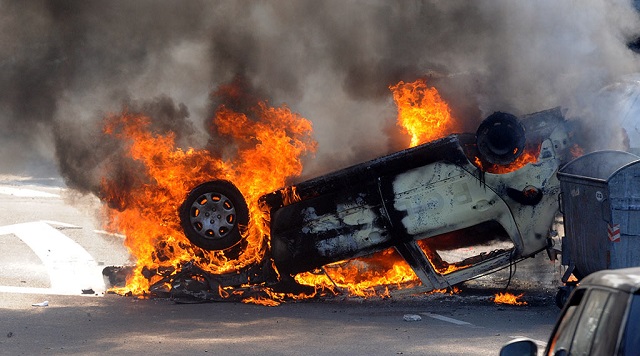World must respond strongly to spate of extremist attacks

Terrorist acts carried out by radical Islamist extremists have begun to return to the forefront, bringing back memories of the scale of destruction and brutality that characterized similar attacks in recent years.
Only last week, Uganda’s capital Kampala was rocked by two coordinated explosions that killed at least three innocent civilians and terrified thousands of residents, who fled the city center fearing for their lives. Ugandan police spokesman Fred Enanga blamed the attack on the Allied Democratic Forces, an extremist group affiliated to Daesh, which claimed responsibility for the attack. He emphasized that there remained a threat of more suicide attacks.
The same warning came out of the UK as its government decided to raise the terror threat level to severe following an attack in Liverpool last week. That incident came just a few weeks after the assassination of Conservative Member of Parliament Sir David Amess.
The UK is expecting more attacks as the holiday season approaches, according to Home Secretary Priti Patel, who warned last Monday that another attack is highly likely. “There is a reason for that and that reason is because what we saw yesterday is the second incident in a month now,” she said following the Liverpool attack.
UK Prime Minister Boris Johnson urged the public to remain vigilant, stressing that no terrorist would succeed in dividing the people of his country. “What yesterday showed above all is that the British people will never be cowed by terrorism, we will never give in to those who seek to divide us with senseless acts of violence,” he said.
According to the Guardian newspaper, “the Liverpool attacker was not previously known to MI5, which keeps a list of 3,000 current suspects and just over 20,000 previous ones, or to specialist counterterrorism police officers.” This information is alarming and extremely dangerous, due to the lack of intelligence on the number and locations of radical sleeper cells or lone wolves that have no sympathy for all religions or humans without exception.
When we say that terrorism has no religion or borders, it is not just a slogan for public announcements, but is rather a fact we witness on the ground on a daily basis all around the globe.
The recent developments in Afghanistan will give all radical Islamists around the world hope and motivation. They will believe that, if it can happen there, it can happen anywhere. This justifies the increase in concern among the international community.
Daesh is now working on various social media platforms to recruit potential suicide bombers, seizing the opportunity to take advantage of young and uneducated Muslims to implement their agenda and carry out attacks during Christmas celebrations.
A chilling video was spotted on TikTok that targeted Daesh sympathizers and urged them to launch mass-casualty terrorist attacks in the West during the holidays. The US Sun reported that the video described different methods and locations for committing such horrific acts. It attempted to brainwash these supporters and motivate them to kill as many people as possible. This TikTok account has been used by Daesh for the past 18 months, with its videos watched thousands of times.
Click HERE to read more.
Originally published by Arab News
COLUMN BY
Dalia al-Aqidi
EDITORS NOTE: This Center for Security Policy column is republished with permission. ©All rights reserved.


Leave a Reply
Want to join the discussion?Feel free to contribute!